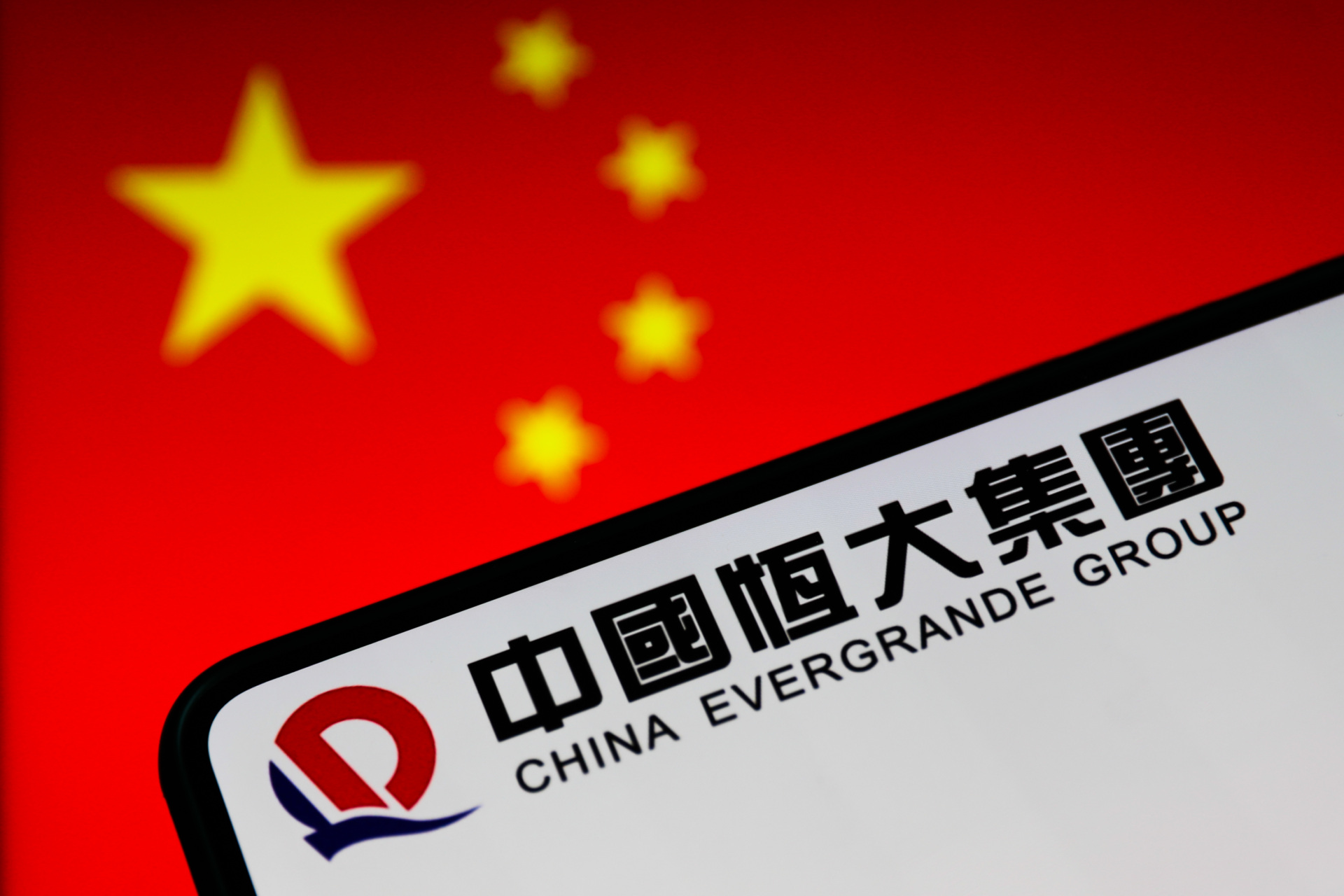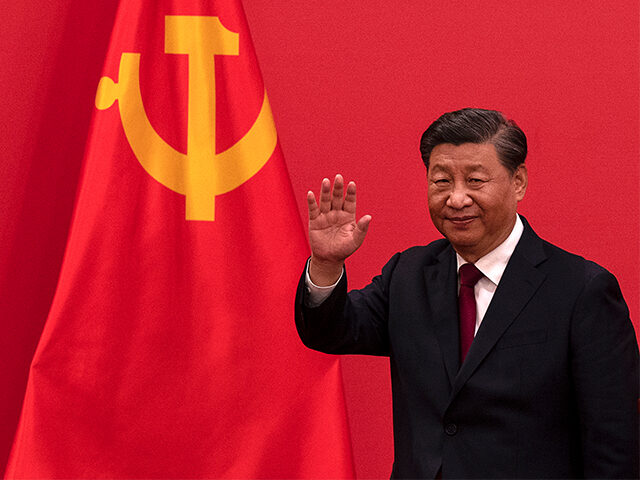China’s Economic Crisis Accelerates
In Ernest Hemingway’s 1926 novel The Sun Also Rises, a character named Mike Campell is asked how he lost his fortune.
“How did you go bankrupt?” the hard-drinking war veteran Bill Gorton asks.
“Two ways,” Campell replies. “Gradually and then suddenly.”
This week investors began to worry that China had entered the second stage of Campell’s financial stress.
Evergrande, once the largest property developer in China and is now thought to rank second, declared bankruptcy under U.S. law on Thursday. It is estimated to have around $28.1 billion of bonds outstanding, most of which come due in 2025.

(Jakub Porzycki/NurPhoto via Getty Images)
Property giant Country Garden missed bond interest payments and suspended trading for its bonds. Moody’s Investors Service cut its rating further into junk-bond territory. On Friday, the company’s shares were dropped from Hong Kong’s Hang Seng Index. Shares are down more than 70 percent year-to-date.
The official economic data coming out of China was surprisingly weak. Growth in consumer spending is moribund. Industrial production is limping. Investment is staggering. Youth unemployment has gotten so bad that the Chinese government announced the official statistics had become a state secret.
Economic growth slid to 0.8 percent in the three months ending in June compared with the previous month, down from 2.2 percent in January-March. To put it in the annualized terms that U.S. readers are familiar with: this is equivalent to a 3.2 percent annual rate of growth. That’s far below the five percent Chinese officials say they are targeting.
J.P. Morgan Chase analysts this week cut their annual growth forecast for China from May’s estimate of 6.4 percent to 4.8 percent. Next year is seen as coming in even weaker, at 4.2 percent. Nomura said it sees a bigger downside risk to its forecast of 4.9 percent growth.
When Will the Bailout Come?
The official state media reported that dictator Xi Jinping had demanded “patience” in a previously unpublished February address to top Chinese Communist Party officials.
In an effort to prevent a further deterioration in the value of its currency, the People’s Bank of China is taking drastic action.
Marketwatch reports:
The yuan is allowed to trade in a 2% band relative to the daily fixing each day. The People’s Bank of China on Friday set that fixing at one dollar equalling 7.2006 yuan — compared to the average Reuters estimate of 7.305 yuan. That’s the largest gap compared to the estimate since the Reuters poll started in 2018, according to ING analysts.
The onshore yuan on Wednesday fell to a 16-year low, with a dollar reaching 7.2981 yuan. On Friday, it was slightly stronger, with one dollar fetching 7.2895 onshore yuan.
The Wall Street Journal says investors fear a “Lehman moment” is approaching:
Signs of financial stress at a large asset manager in China are making investors nervous about contagion from the country’s slumping property sector, rekindling a debate over whether a “Lehman moment” could occur in the world’s second-largest economy.
Zhongrong International Trust, a seller of esoteric financial products that had the equivalent of $108 billion in assets under management at the end of 2022, has become the market’s latest worry. Four trust products managed by the firm recently missed interest and principal payments totaling the equivalent of $14 million to three publicly listed Chinese companies, according to stock-exchange filings. Beijing-headquartered Zhongrong has provided financing to many real-estate developers and helped to fund their building projects.
It’s likely only a matter of time before the Chinese state steps in with a much bigger economic intervention. Indeed, outside of China, banks are basically calling for a bailout of the economy.
“In our view, Beijing should play the role of lender of last resort to support some major developers and financial institutions in trouble, and should play the role of spender of last resort to boost aggregate demand,” Nomura’s Chief China Economist Ting Lu wrote in a note released Tuesday.
Some analysts are advising that all of this fear of a collapse in China may be creating opportunity.
“Risk of China ‘credit event’ already spooking global markets but we would expect China event quickly elicits big (international) policy response,” Bank of America’s Michael Hartnett wrote in his “Flow Show” note on Thursday night. “[D]espised China stocks, like US REITs, thus best hedge should policy makers cause bond yields & Chinese renminbi to both pull back from precipice.”
A Perplexing Illustration
China Daily, meanwhile, published this cartoon this week:
China Daily going hard today pic.twitter.com/0PqlZpmHdd
— Joel Atkinson 舟綽 (@Joel_P_Atkinson) August 17, 2023
It appears to depict the U.S. as addicted to interest rate hikes—although any more precise meaning has so far escaped just about everyone in the United States. Our favorite interpretation: it’s just a Chinese psyop meant to tax U.S. attention with a meaningless analogy.

COMMENTS
Please let us know if you're having issues with commenting.